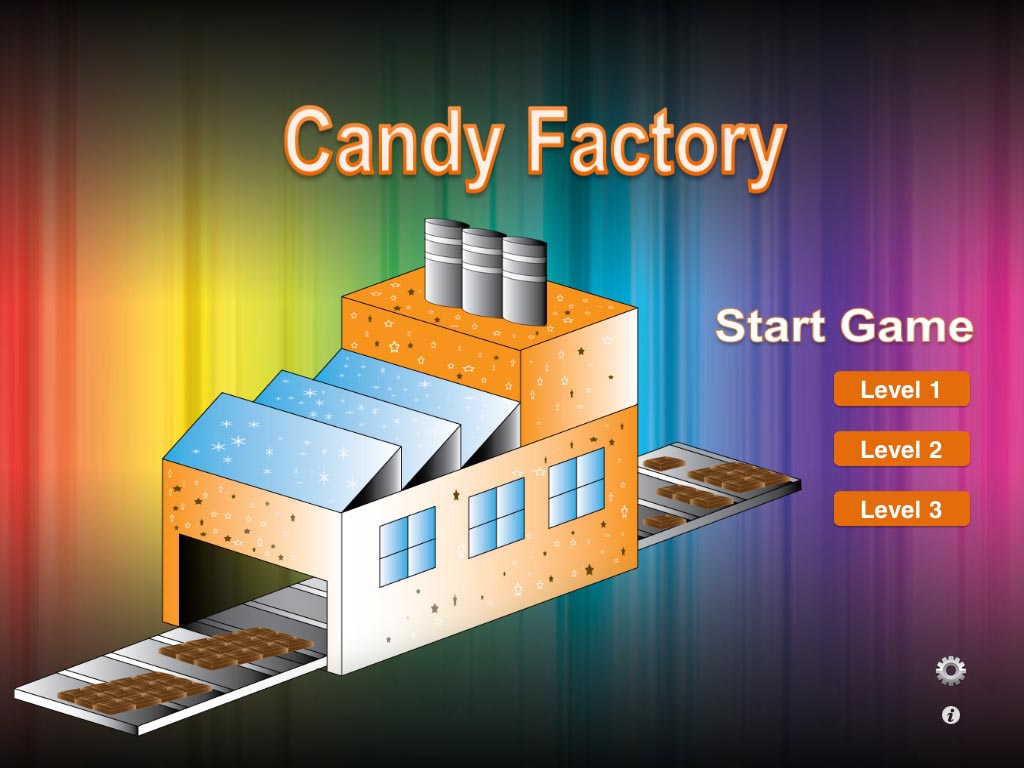CandyFactory app rapidly growing in popularity

A multidisciplinary team representing Virginia Tech's Colleges of Science, Liberal Arts and Human Sciences, and Engineering, has developed a highly successful educational software application (app) that is designed to teach fractions concepts to middle-school students.
Developers include, Michael A. Evans, associate professor of learning sciences and technologies; Osman Balci, professor of computer science; Mido Chang, associate professor of educational research and evaluation; Kirby Deater-Deckard, professor of psychology; Andy Norton, associate professor of mathematics; and Serdar Aslan of Istanbul, Turkey, a current Ph.D. student in computer science who received his master's in the same subject from Virginia Tech in May 2011.
The CandyFactory consists of three game levels that challenge students to build a stronger understanding of proper and improper fractions. The game is based around a candy manufacturing factory where students must satisfy a customer’s order for a candy bar of a particular size.
“The students must imaginatively use mental actions of partitioning a whole candy bar into a certain number of pieces and iterating or making copies, of those pieces,” Norton said. “By engaging existing mental actions in creative ways, students begin to understand fractions as sizes relative to the whole.”
The team designed the app as a “proof of concept” for a new $2 million National Science Foundation (NSF) grant, which was recently approved for funding. The grant will support the development of at least three additional apps. Evans and Deater-Deckard were supported by a summer scholars grant from the Institute for Society, Culture, and Environment to develop the team and project, which led to the collaboration and NSF grant.
“We will work with local school systems to implement the apps in middle-school classrooms and measure the effects on students’ learning,” Evans said.
The CandyFactory Game is a universal iOS app that runs on the iPad, iPod Touch, and iPhone mobile devices. So far, the app has recorded almost 2,000 downloads in less than a month.
“We have developed a robust template for developing educational apps that encourage students to think more deeply about mathematics while eventually incorporating features that will allow teachers to monitor progress for diagnosis and assessment,” Evans, principal investigator for the grant, said.
“The novelty of our design stems from the interdisciplinary nature of our team,” Norton said. “We have input from learning sciences, game design, theories of student engagement, learning trajectories and educational statistics.”
View the app in Virginia Tech’s iTunes store.
Dedicated to its motto, Ut Prosim (That I May Serve), Virginia Tech takes a hands-on, engaging approach to education, preparing scholars to be leaders in their fields and communities. As the commonwealth’s most comprehensive university and its leading research institution, Virginia Tech offers 240 undergraduate and graduate degree programs to more than 31,000 students and manages a research portfolio of $513 million. The university fulfills its land-grant mission of transforming knowledge to practice through technological leadership and by fueling economic growth and job creation locally, regionally, and across Virginia.



